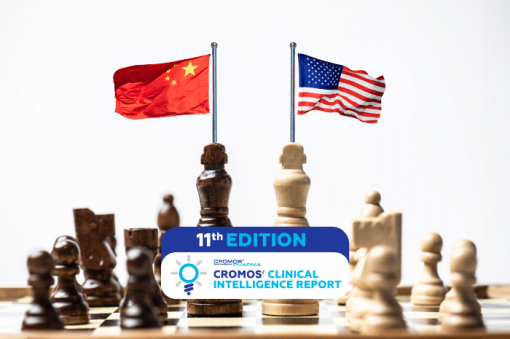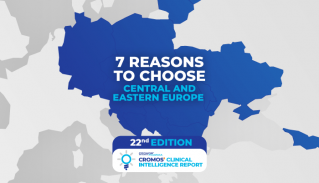
Navigating the Challenges: The Impact of US-China Tensions on Biopharmaceutical Innovation
The escalating tensions between the US and China have permeated various sectors, including the biopharmaceutical industry, significantly impacting companies with footprints in both countries. This piece explores the implications of these tensions, focusing on the case of WuXi AppTec and the Biotechnology Innovation Organization’s (BIO) recent decision to sever ties.
The BIO-WuXi Clash: What’s Going On?
The BIO, under the leadership of its newly appointed President & CEO John F. Crowley, has initiated steps to end its association with WuXi AppTec, labeling it as an “enemy of the state.”
Drawing parallels to TikTok’s situation, Crowley and BIO posit WuXi AppTec as a similar figure in the biopharma sector. Just as the US legislation aims to force TikTok’s sale to mitigate risks of personal data misuse by its Chinese owners, WuXi faces scrutiny under similar pretenses but in the realm of biotechnology. The US perceives WuXi’s activities as potentially aiding China’s ambition to dominate global biotech, analogous to fears of TikTok spreading narratives favoring Chinese interests.
Despite WuXi’s longstanding partnerships and contributions to the industry without specific allegations of IP theft, BIO’s decision reflects broader geopolitical efforts to safeguard the US biotech preeminence against perceived Chinese strategies.
The Stakes for US-Chinese Biopharmaceutical Companies
The exclusion of WuXi AppTec, a giant in the Contract Development and Manufacturing Organization (CDMO) sector, from collaborations with American entities underscores significant stakes for US-Chinese biopharmaceutical partnerships. As a pivotal component of the global biotech industry since the early 2000s, with its operations spanning several key US states and collaborations with hundreds to thousands of companies, WuXi AppTec has been instrumental in driving forward the spectrum of services from research to manufacturing. Its role has transcended that of a mere service provider, becoming a vital bridge between American firms and the extensive resources and innovation capabilities globally.
The decision to discontinue collaboration with this CDMO not only jeopardizes this critical conduit of collaboration and innovation but also signals potential broader repercussions for US-Chinese biopharmaceutical cooperations. It poses a risk of stifling the shared progress in developing groundbreaking therapies, highlighting the intricate balance between geopolitical concerns and the collective pursuit of advancing healthcare solutions.
Challenges Faced by Biopharmaceutical Companies
WuXi AppTec provides a comprehensive range of services, aiding numerous US and global pharmaceutical companies. However, BIO’s stance introduces new challenges for companies within the industry.
Biopharmaceutical companies, particularly in the US, are now confronted with the challenge of compensating for the gap left by WuXi’s comprehensive range of services, spanning initial discovery through to the final stages of bringing products to market. This situation could result in prolonged research and development periods, escalated expenses, and difficulties in securing the distinct services that were a hallmark of WuXi’s contributions.
The BIO’s recent decision may lead to several significant challenges for the industry:
- Regulatory hurdles are likely to increase, as heightened scrutiny and regulatory barriers complicate the already complex approval processes for new drugs, potentially delaying or hindering innovations from reaching the market.
- Supply chain disruptions pose another critical challenge; given the industry’s reliance on a global network for the production and distribution of pharmaceuticals, any strain in US-China relations could impact the timely availability of essential medications.
- Intellectual property concerns are amplified in this environment, with the potential for escalated fears around IP theft or compromise, which could deter vital collaborations and investments critical for advancing pharmaceutical research and development.
- Investment uncertainty becomes a more pronounced issue, as the geopolitical climate may discourage financial backing for biopharmaceutical ventures involving the US and Chinese entities, given the perceived risks.
This complex scenario underscores the necessity for the biopharmaceutical industry to strategize effectively in an increasingly geopolitically sensitive environment.
Strategies for Navigating the Challenges
In facing the challenges brought about by escalating US-China tensions, biopharmaceutical companies can adopt several strategic approaches to navigate these turbulent waters successfully:
- Diversifying partnerships becomes crucial, as companies may need to extend their collaboration networks beyond the US-China axis, tapping into new markets and innovation hubs to mitigate risks and continue their path of innovation.
- Strengthening supply chains is another vital strategy, where creating more resilient and diversified supply channels can help companies better withstand geopolitical disruptions, ensuring the steady production and distribution of pharmaceuticals.
- Fostering transparency with regulatory bodies and stakeholders can address regulatory hurdles, facilitating smoother approval processes for new drugs by openly communicating progress, challenges, and compliance.
- Investing in intellectual property protection is paramount; by securing their innovations through robust IP strategies, companies can safeguard their competitive edge and deter potential compromises to their proprietary information.
Together, these strategies offer a roadmap for biopharmaceutical firms to adapt and thrive even as they navigate the complexities of international relations and industry-specific challenges.
In conclusion, the narrative surrounding WuXi AppTec and the broader US-China tensions in biotechnology is more than a story of corporate and national rivalry. As both China and the US navigate this evolving scenario, the focus remains on advancing biotech innovation while safeguarding national interests. The long-term impact of these decisions will likely influence the strategies of biotech firms worldwide, emphasizing the importance of adaptability and strategic foresight in an increasingly interconnected global landscape.






























